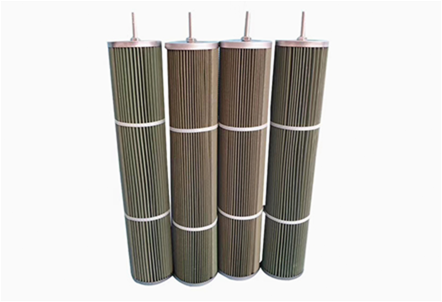 Tel:
+8615930870079
Tel:
+8615930870079
Nov . 08, 2024 15:26 Back to list
hepa cartridges
Understanding HEPA Cartridges Essential Tools for Clean Air
With increasing concerns over air quality and health, the demand for effective air filtration systems has surged. Among these, HEPA (High-Efficiency Particulate Air) cartridges have gained prominence due to their ability to significantly reduce airborne pollutants. This article delves into what HEPA cartridges are, how they work, their applications, and why they are essential for maintaining a healthier living environment.
What are HEPA Cartridges?
HEPA cartridges are specialized filters designed to capture a high percentage of airborne particles. According to U.S. Department of Energy standards, a true HEPA filter can remove at least 99.97% of particles that are 0.3 microns in diameter. This includes common allergens such as dust mites, pollen, pet dander, and even some bacteria and viruses. HEPA cartridges are typically made from a mat of randomly arranged fibers, allowing for a dense yet permeable structure that traps particles as air passes through.
How Do HEPA Cartridges Work?
The effectiveness of HEPA cartridges is rooted in their physical structure. The fibers in the cartridge create a maze-like environment where particles can become entangled or adhere to the fibers. The filtration process involves three key mechanisms interception, inertial impaction, and diffusion.
1. Interception occurs when particles follow the airflow and get close enough to the fibers to stick to them. 2. Inertial impaction happens when larger particles are unable to adjust to changes in airflow direction, causing them to collide with the fibers and become trapped. 3. Diffusion affects smaller particles, which move erratically and are more likely to collide with fibrous surfaces due to Brownian motion.
This combination of mechanisms makes HEPA cartridges one of the most efficient air filtering solutions available
.hepa cartridges

Applications of HEPA Cartridges
HEPA cartridges are used in a variety of settings, from residential homes to industrial environments. In homes, you’ll find these cartridges in air purifiers, vacuum cleaners, and HVAC systems, helping reduce allergens and improve indoor air quality. Hospitals and laboratories also rely on HEPA filtration for operating rooms and cleanrooms to minimize infection risks and contamination.
Additionally, HEPA cartridges are crucial in industries such as automotive manufacturing, pharmaceuticals, and food production where clean air conditions are imperative. They are often integrated into systems designed to control airborne contaminants, protecting both products and personnel.
Importance of HEPA Cartridges for Health
The importance of HEPA cartridges cannot be overstated in our increasingly polluted world. With rising levels of air pollution caused by industrial emissions, vehicle exhaust, and other factors, ensuring clean indoor air has become more critical than ever. HEPA filters play a vital role in reducing the incidence of respiratory conditions, allergies, and other health problems associated with poor air quality.
For individuals with asthma, allergies, or other respiratory issues, HEPA filtration can make a significant difference in symptom management and overall quality of life. In settings where vulnerable populations, such as the elderly or immunocompromised individuals, reside, the presence of HEPA filtration serves as a valuable line of defense against airborne pathogens.
Conclusion
In conclusion, HEPA cartridges represent a highly effective solution for achieving clean air in a variety of environments. Their ability to trap a vast array of airborne particles makes them indispensable tools in homes, healthcare facilities, and industries alike. As we continue to confront air quality challenges, investing in HEPA filtration systems is a proactive step towards promoting health and well-being. Whether for personal use or within institutional frameworks, understanding and utilizing HEPA cartridges will contribute to a cleaner, healthier future.
-
Types and Applications of Air Filtration CartridgesNewsJul.28,2025
-
The Role of Gas Turbine FiltersNewsJul.28,2025
-
Mastering Air Filter Cartridge UseNewsJul.28,2025
-
Advanced Turbine Filters for Modern Gas TurbinesNewsJul.28,2025
-
Cellulose Air Filter Cartridge Advantages in Dust FiltrationNewsJul.28,2025
-
Cellulose Filters for Air Particle ReductionNewsJul.28,2025

 Email:
Email:





